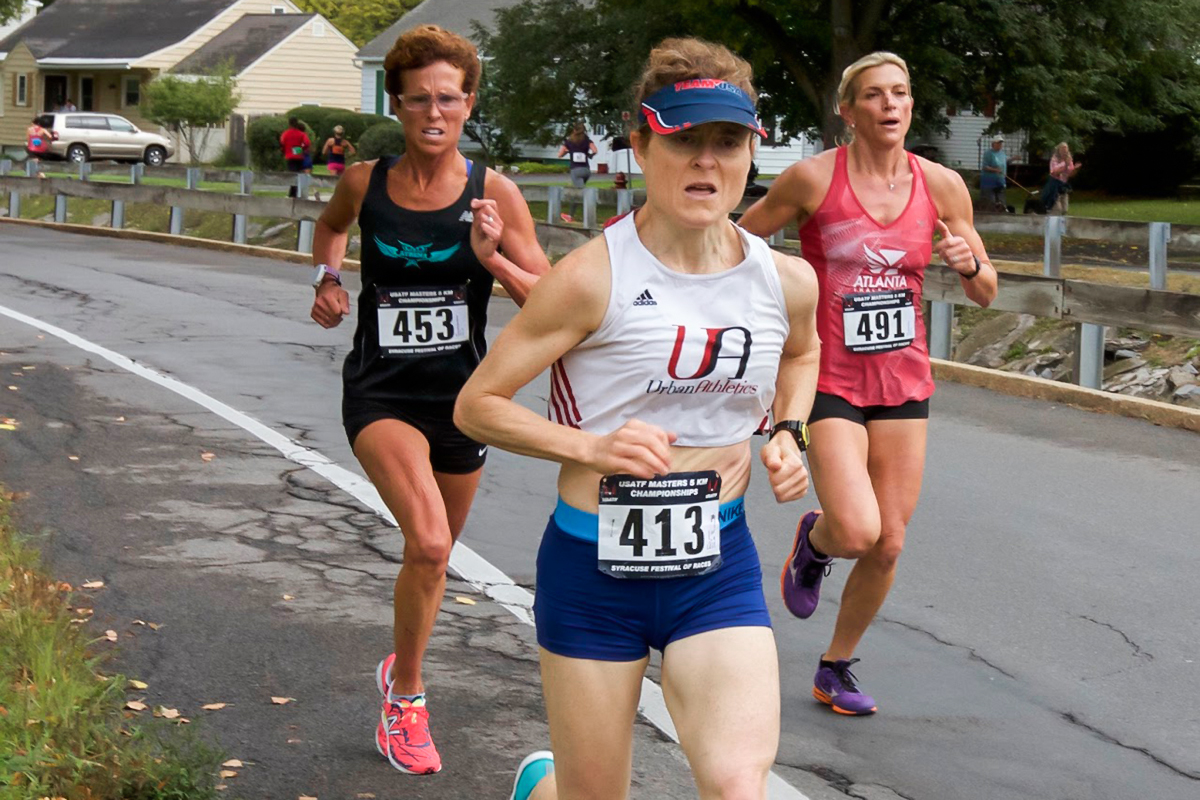Fiona “Fi” Bayly ’85

Fiona Bayly has not stopped running since 1982, when she joined Exeter’s cross-country team during her lower year. Nearly 30 years after helping to rewrite some of the school’s cross-country record books, Bayly hasn’t stopped winning, either.
Her post-Exeter career features a long list of accomplishments that includes a distinguished career at Dartmouth College, multiple USA Track and Field New York Masters Runner of the Month awards, and an ever-expanding list of 5k, 10k and half-marathon victories at venues that span the nation.
Last March, Bayly and five of her teammates from Urban Athletics took first place while setting a world-class record in masters running (a racing division for runners over 40) in the coed indoor marathon relay at the New Balance Track & Field Center at the Armory in New York City. That was a nice feat, but perhaps nothing compares to the achievement of becoming a world champion.
With swimming part of her racing repertoire since the early 2000s, Bayly earned a spot on Team USA in 2014 at the International Triathlon Union Aquathlon World Championships in Edmonton, Canada, where she won a gold medal and secured the world championship in her age group.
“Competing for and being part of Team USA is another branch of my athletic career,” Bayly says, “but at each stop along the way, I always trace it back to my time at Exeter. It seems like just yesterday, I was covering the [cross-country] course … over roots of trees and through the grass. If you put me on the bridge that leads out to Phelps Stadium today, my feet would just go.”
Bayly arrived on campus as a soccer, ice hockey and lacrosse player. While she remained part of the ice hockey program throughout her tenure, she made the switch from soccer to cross-country in her lower year after finding success in local races over the summer. The transition paid immediate dividends; she was named team MVP for three straight years and served as team captain in her final two years, while going undefeated and becoming the Interschol champion in 1984.